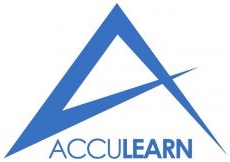Objectives
- To provide delegates with the understanding, knowledge and strategies that oil & gas management must make for success. By the end of program delegates will be able to:
- Have an understanding of the ways the oil & gas and energy industries have organized to operate effectively and efficiently
- Recognize the latest Game-changing technologies – seismic, well logging, horizontal drilling, fracking, gas to liquid, etc.
- Distinguish the renewable sources of energy and the future trends in Solar, Wind, Wave, Hydro, Geothermal, Nuclear, and the methodology to compare the costs of energy of each source
- Understand the benefits of integrating refineries with petrochemicals
- Gain an understanding of the ways the oil and gas industries have organized to operate effectively and efficiently
Programme Outline
Day 1
Sources, Origin and Nature of Petroleum
- Introduction
- Industry overview
- Chemistry of fossil fuels
- Origins of hydrocarbon deposits
- Basic petroleum geology
- Exploration methods & activities
Day 2
Well Evaluations & Drilling Operations & Reservoir Management
- Types of wells
- Well Evaluations
- Drilling Operations
- Well Completions
- Oil & Gas Reserve Estimates
- Volumetric Calculations – Original Oil & Gas In-Place
- Reservoir Depletion Mechanisms
- Declining Curve Analyses
- Case Study: Oil Reserves estimation
Day 3
Conventional & Unconventional Production
- Unconventional oil & gas
- Shale Oil & Gas, Tight Gas, and Heavy Oil Recovery
- Oil recovery methods
- Primary, Secondary and Tertiary
- Enhanced Oil Recovery Techniques
- Reservoir Management – maximize ultimate recovery of oil
Day 4 –
New Oil & Gas Field Development and Economic Evaluation
- Typical Decision Yardsticks
- Petroleum Economics Analysis:
- Net Present Value
- Internal Rate of Return
- Profitability Index
- Unit Tech Cost
- Economic Limit
- Case study: Oil and gas field development economic evaluation
Day 5 –
Oil & Gas Contracts & Joint Ventures
- Need for collaboration between parties – NOC’s and IOC’s
- Alignment of interests
- Oil & Gas Contracts
- Types of Contracts
- Concession agreements
- Production Sharing Agreement/Contract (PSA/PSC)
- Technical Service Contract/Agreement (TSA)
- Joint Venture and Service agreements
Day 6 –
Petroleum Fiscal Regimes
- Comparison of fiscal regimes
- Auction theory and methods
- Similarities among fiscal systems
- Accounting aspects of fiscal systems
- Division of revenues and profits
- Concession
- Concession rentals
- Unitisation agreements
- Royalties
- Profit tax
- Corporate tax
- Ring fencing
- State participation
- Signature bonus
- Production bonus
- Bidding for leases
Day 7 –
The chemistry of petroleum and the refining processes
- Crude and Product Quality
- Crude oil refining operations
- Crude Oil Fractions
- Crude Oil Refinery Products & Processes
- Refinery configurations – separation, conversion and treatment
- Refining Complexity
- Pipelines
- Storage
- Treatment & Blending
- Utilities
Day 8 –
Refining Economics – environmental aspects
- Refinery economics
- Benefits of Integrating with Petrochemicals
- Global oil reserves, production & trade movements
- Crude Oil and Refining gross product worth (GPW)
- Freight
- Netback and Refining Margin
- Vessel chartering
- Environmental aspects
- Case Study: Netback pricing calculation
Day 9 –
Oil & Gas Exports and Imports Business
- Organization of Petroleum Exporting Companies (OPEC)
- Other international and multi-national organizations
- International Energy Agency (IEA)
- Oil Markets – Crude pricing regimes
- Transportation Logistics – Pipelines, Terminals and Storage
- Crude Oil Tankers
- World’s Major Pipelines
- World’s Major Terminals, Refineries
- Transportation Logistics – Losses
- Bottle necks and Chokepoints
Day 10 –
Pricing, Trading, Markets, Risk Management
- Crude oil Benchmarks
- Crude price assessment
- Oil Trading
- Total Barrel Economics
- Oil Markets – Futures
- Exposure – Price
- Hedging – risk management
- Pricing Management Considerations
- Derivatives
- Course Summary



